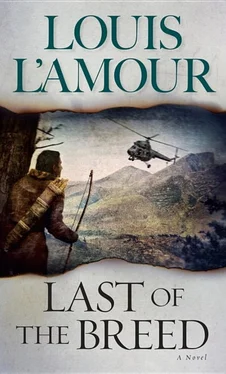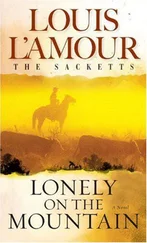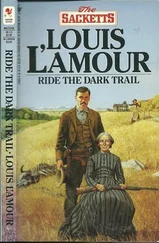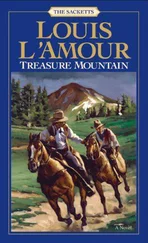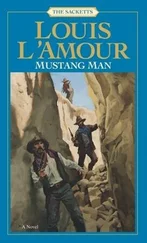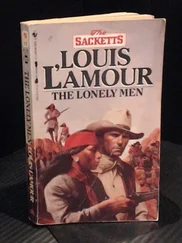Louis L'Amour - Last of the Breed
Здесь есть возможность читать онлайн «Louis L'Amour - Last of the Breed» весь текст электронной книги совершенно бесплатно (целиком полную версию без сокращений). В некоторых случаях можно слушать аудио, скачать через торрент в формате fb2 и присутствует краткое содержание. Город: New York, Год выпуска: 2010, ISBN: 2010, Издательство: Random House Publishing Group, Жанр: Триллер, Историческая проза, Приключения про индейцев, на английском языке. Описание произведения, (предисловие) а так же отзывы посетителей доступны на портале библиотеки ЛибКат.
- Название:Last of the Breed
- Автор:
- Издательство:Random House Publishing Group
- Жанр:
- Год:2010
- Город:New York
- ISBN:978-0-553-89935-1
- Рейтинг книги:3 / 5. Голосов: 1
-
Избранное:Добавить в избранное
- Отзывы:
-
Ваша оценка:
- 60
- 1
- 2
- 3
- 4
- 5
Last of the Breed: краткое содержание, описание и аннотация
Предлагаем к чтению аннотацию, описание, краткое содержание или предисловие (зависит от того, что написал сам автор книги «Last of the Breed»). Если вы не нашли необходимую информацию о книге — напишите в комментариях, мы постараемся отыскать её.
Last of the Breed — читать онлайн бесплатно полную книгу (весь текст) целиком
Ниже представлен текст книги, разбитый по страницам. Система сохранения места последней прочитанной страницы, позволяет с удобством читать онлайн бесплатно книгу «Last of the Breed», без необходимости каждый раз заново искать на чём Вы остановились. Поставьте закладку, и сможете в любой момент перейти на страницу, на которой закончили чтение.
Интервал:
Закладка:
She was no fool. This one was sharp, unusually intelligent. The sooner he was rid of her the better.
“Who is this man you seek? An American, I hear?”
“I have heard that, too,” she replied. She had detected some uneasiness and decided Wulff did not want strangers looking about. Well, that was his business. Her business was to find and recapture Major Makatozi. Yet he was no fool, and he must already have the basic facts. “He is a flyer who has information we wish to have. It is as simple as that. It is very important that we capture him at once.”
“It has been a long time now,” Wulff said. “He is probably dead.” He paused. “The watch along the border has been very careful. My men have gone into every town, every village, every camp all along the Amur. The army is uncommonly alert. If he is alive, we will find him.”
“It would help,” she said, “if I found him. Or if he was turned over to me, I can assure you Colonel Zamatev would be most grateful.”
“Of course. I am an admirer of the Colonel. I wish him every success.” He hitched around in his chair. “His capture might mean a lot to the Colonel. It might even take him to Moscow.”
A move, Wulff thought, that would please a lot of people. Zamatev was too sharp, too hard to deal with. Or perhaps the trouble was that he would not deal at all. If he failed to recapture this American, he might be with them always. That in itself was incentive enough. Colonel Zamatev had many admirers, but it would be easier to admire him if he were in Moscow.
“How he ever got such a man is beyond me. The GRU—”
“It was Colonel Zamatev who arranged it” — she smiled — “as he arranges many things.”
Wulff stood up. The interview was over. “If I can help, call on me, but I believe your American is dead.
“Where would he go? How could he live? Winter is here, and that is a vast wilderness out there. Believe me, comrade, I have traveled it. When I was younger—”
“This man is different. He is a Red Indian.”
Wulff was astonished. An Indian? He had believed they were all dead. He had not heard of any Indians since he was a boy and saw those American movies. Exciting stuff, too.
“How could that be? I understood he was an officer in the American air force?”
“He’s that, too.” Kyra turned toward the door. “What you must understand is that he is a man who knows how to live in the taiga.”
Outside, Kyra was irritated. Nothing had come of that. What would Wulff do? Would he cooperate? Or try to take the American himself? Or would he work with Shepilov? She drew her belt tight against the wind. He would do what was expedient for Wulff.
Stegman was waiting with a car. He was a lean but powerful man of some forty years who carried himself like a man ten years younger. He was one of Zamatev’s best men.
“Nothing definite,” she told him. “Whatever is done we must do ourselves.” She paused. “Does he know you?”
“I do not believe so.”
“I will walk. But what I want is to find out what Comrade Wulff does next. It could be very helpful.”
Stegman got in the car and drove away around the block; then he parked some distance off where he could watch the door. Kyra Lebedev went back to the hotel and getting out the maps she had brought, spread them out on the bed. She was dismayed. Even she, who had lived and worked in Siberia, was always amazed at its sheer size. Now, thinking of finding one man in all that vastness, she was appalled.
So many rivers! So much forest! Yet if he was an Indian he must be a hunter, and he would try to live off the land. In the dead of winter that would be almost impossible. Wulff was probably right. The man was dead or soon would be.
They had to be sure. Studying the map, she started to think, trying to imagine what the escaped prisoner must have done.
First he had to get away from the prison area, and he dare not be seen. Yet he might have gone in any direction, and they had no leads, nothing except Alekhin’s belief that he had gone east, a belief based on something so flimsy—
A missing knife that might have simply been lost. The chance of some missing food. The food might never have been there at all, or it might have been eaten by some hungry workman who came to the place, saw the food, and simply took it.
Yet she had heard much of Alekhin from Arkady and from two Yakut friends. They did not like him. He was a surly brute who kept much to himself and was notoriously cruel. Nonetheless, all agreed nobody was better at capturing escapees. She must talk to him. But where was he?
The helicopter again — that was the fastest way of searching, and Stegman was a superb pilot.
Earlier they had tried to check every abandoned building of which there was record, and they had followed streams and roads and landed to make inquiries… nothing. Simply nothing.
There was a tap on the door. It was Stegman.
“He left immediately after you did, and he walked to a small building on a side street.” Stegman looked up at her. “The man within deals in furs.”
“Ah? In furs. A man, then, who might know trappers and hunters. And Wulff did not send somebody? He went himself? That’s interesting.”
“Yes.”
She thought about that while Stegman waited. Aloud, she said, “It might be some personal affair, but if not, why would he go himself and not have somebody else go?”
“A source?” Stegman suggested.
“Just what I was thinking. A private source.” She glanced at Stegman. “Did you notice the fur coat hanging in his office? Excellent fur.”
“Yes.”
“I believe I will have a talk with this furrier. Did you get his name?”
“Zhikarev, Evgeny Zhikarev, in business in the same location for fifty years.”
“Ah? A survivor. Well, we shall see.”
Her heart was beating faster. Maybe Wulff knew something, maybe he was just fishing, but a furrier?
Maybe this was it, the break she had been hoping for. If it was—
To move swiftly, that was the thing. If this was the lead she needed, she might have Makatozi before the week was out. Maybe even today!
She was almost running when she reached the car.
Chapter 14
Evgeny Zhikarev was disturbed. He was a small man with rumpled gray hair and a thick black mustache. He wore steel-rimmed glasses that were perpetually resting near the end of his nose and seemed in acute danger of falling off. He wore this morning a gray shirt with a vest of worn velvet on which arabesques were embroidered in red, gold, and green thread.
Around the shop he wore slippers. Several times during his earlier years he had undergone torture by the Cheka, and as a result his feet were crippled. He wore shoes only when it was necessary to leave the shop. As his living quarters were in the rear alongside his storeroom, his absences were rare.
His father had been substantially well off under the Tsar, operating a highly successful fur business in what was then called St. Petersburg. The Revolution had ended all that, and having lost everything in Russia, the elder Zhikarev had fled to Siberia, where a source of his furs was still operating. There, far from the seat of power, the Zhikarevs had carried on. There was always a market for furs in Russia, as there was in Manchuria and China. The Zhikarevs, father and son, had done well, maintaining a low profile in rather shabby quarters, outwardly conforming to all the rules, but operating with a comfortable margin of profit.
It was understood that officials such as Wulff could always secure furs from him at a modest price; in Wulff’s case this meant fur coats for himself, his wife, and at least two other ladies at no cost at all. Moreover, on occasion fur coats had been made for people Wulff wished to impress, and Wulff himself looked the other way as to some of Zhikarev’s other dealings. He took what was given, made occasional discreet suggestions, and maintained a nice relationship with Zhikarev without saying anything at all.
Читать дальшеИнтервал:
Закладка:
Похожие книги на «Last of the Breed»
Представляем Вашему вниманию похожие книги на «Last of the Breed» списком для выбора. Мы отобрали схожую по названию и смыслу литературу в надежде предоставить читателям больше вариантов отыскать новые, интересные, ещё непрочитанные произведения.
Обсуждение, отзывы о книге «Last of the Breed» и просто собственные мнения читателей. Оставьте ваши комментарии, напишите, что Вы думаете о произведении, его смысле или главных героях. Укажите что конкретно понравилось, а что нет, и почему Вы так считаете.
